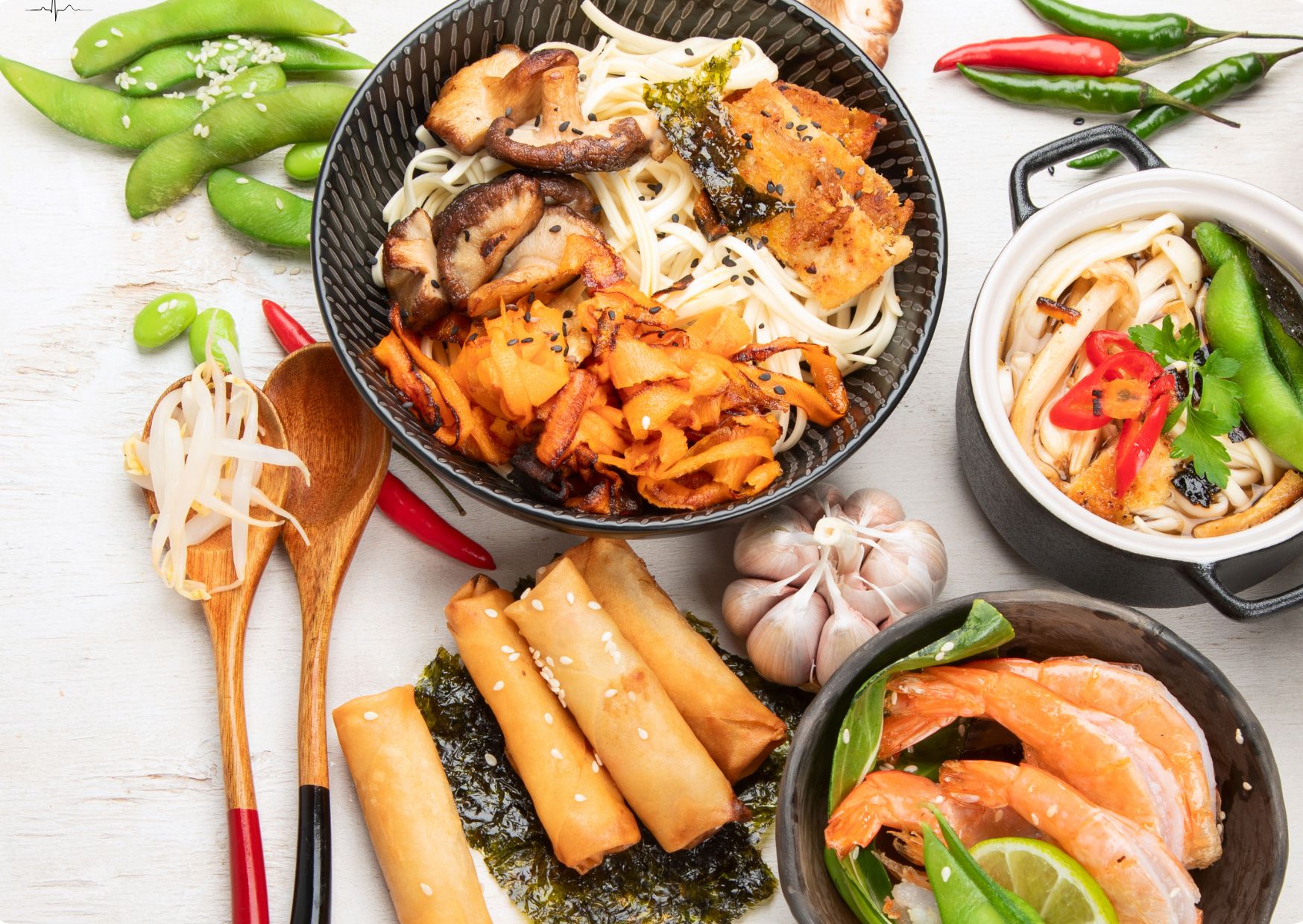Rwandan cuisine
“The best dishes are those cooked with love”
Description
Overview
Explore the rich and vibrant flavors of Rwandan cuisine in this exciting online course. Rwandan food is a perfect reflection of the country’s agricultural heritage and its deeply rooted cultural traditions. This online Rwandan cuisine course is designed to give you a comprehensive understanding of the key ingredients, cooking methods, and unique flavors that define Rwandan cooking. Whether you’re a culinary enthusiast, a professional chef, or someone simply interested in exploring new cuisines, this course offers the perfect opportunity to dive deep into one of East Africa’s most underrated culinary traditions.
Rwanda’s cuisine is primarily based on locally grown crops such as maize, beans, cassava, plantains, and sweet potatoes, combined with fresh, locally sourced meat, fish, and poultry. The dishes are hearty, flavorful, and nourishing, making use of simple ingredients, yet with distinctive cooking methods that transform them into flavorful meals. In this best Rwandan cuisine course, you will learn to prepare authentic dishes that reflect the country’s love for fresh, farm-to-table food.
In this course, you will explore Rwandan staples such as Isombe (cassava leaves stew), Ibihaza (pumpkin and beans), Ugali (a cornmeal dish), Brochettes (grilled skewers), and much more. You’ll learn how to prepare these dishes with ease and gain insight into the cultural significance of food in Rwandan society. The course also covers the historical and social aspects of Rwandan cuisine, from its influence by neighboring countries to how food plays a central role in community gatherings and celebrations.
By the end of this online Rwandan cuisine course, you will have the skills to recreate Rwandan meals in your own kitchen. Whether you’re cooking for friends and family or expanding your culinary repertoire, Rwandan cuisine offers a delicious and unique experience that will enrich your cooking skills.
What You Will Learn:
- Traditional Rwandan Dishes: Master the art of cooking essential Rwandan meals, from stews and hearty side dishes to delicious grilled meats and savory pastries.
- Key Ingredients: Discover the essential ingredients of Rwandan cuisine, including cassava, maize, beans, plantains, and more.
- Cooking Techniques: Learn cooking methods unique to Rwandan cuisine, such as slow cooking, grilling, and steaming.
- Cultural Significance of Food: Understand how Rwandan food reflects the nation’s culture, history, and traditions, with an emphasis on community dining and hospitality.
Whether you are located in the UK, the US, or any other part of the world, you can access this course online, giving you the flexibility to learn at your own pace. Start today and immerse yourself in the flavors and traditions of Rwandan cuisine.
Description
Why You Should Take the Rwandan Cuisine Course
If you’re passionate about discovering new and exciting flavors, learning Rwandan cuisine is a great way to expand your culinary knowledge. Rwandan cuisine is often overlooked in the global food scene, but it is a rich and diverse culinary tradition that is deeply tied to the land and its people. By taking this course, you’ll learn about the history, flavors, and techniques that define Rwandan cooking and gain the confidence to prepare traditional Rwandan dishes in your own kitchen.
Rwandan cuisine is characterized by its use of fresh, locally sourced ingredients. The country’s fertile lands provide an abundance of crops such as beans, maize, cassava, and plantains, while its lakes and rivers offer fresh fish. Rwandan food is simple yet flavorful, with a focus on combining different ingredients in balanced ways to create meals that are both nourishing and delicious. The dishes often feature hearty stews, grilled meats, and side dishes made from staple crops, reflecting the self-sufficiency and agricultural roots of Rwandan society.
The best Rwandan cuisine course will teach you how to prepare iconic dishes such as Isombe, a cassava leaf stew with ground peanuts, and Ibihaza, a pumpkin and bean dish, both staples of Rwandan home cooking. You will also learn how to make Ugali, a dense maize dish often served alongside stews and vegetables, and Brochettes, delicious skewers of grilled meat that are perfect for any gathering.
This course is more than just a cooking class. It’s an opportunity to learn about the cultural importance of food in Rwanda, where meals are often shared with friends and family as part of community celebrations. Food is a central part of Rwandan identity, and by learning how to cook these dishes, you will gain a deeper appreciation for the people, history, and traditions of Rwanda.
In addition to the practical cooking skills you’ll develop, this course will also give you a taste of Rwanda’s rich agricultural culture and its importance in the social fabric of the country. Rwandans have a deep connection to their food, and this course will help you understand that connection on a deeper level.
What Will You Learn in This Course?
Traditional Rwandan Recipes:
- Isombe (Cassava Leaf Stew): A delicious and nutritious stew made from cassava leaves and ground peanuts.
- Ibihaza (Pumpkin and Beans): A savory, hearty dish that combines pumpkin and beans, two essential ingredients in Rwandan cuisine.
- Ugali (Maize Dish): Learn how to prepare this staple side dish made from maize flour, commonly served with stews and vegetables.
- Brochettes (Grilled Skewers): Master the art of making juicy, flavorful skewers of grilled meat, often served during celebrations and social gatherings.
Key Ingredients in Rwandan Cuisine:
- Cassava: A root vegetable that is a staple in Rwandan cooking, used in stews and side dishes.
- Beans: Learn how beans are prepared and incorporated into various dishes, offering protein and texture.
- Maize: Discover how maize is used in Rwandan dishes like Ugali and Ibihaza.
- Plantains: Learn how to prepare plantains, which are used in both sweet and savory dishes in Rwandan cuisine.
Cooking Techniques:
- Slow Cooking: Understand the importance of slow cooking in Rwandan cuisine, allowing flavors to develop and ingredients to become tender.
- Grilling: Master grilling techniques for meats like goat and beef, often used for Brochettes.
- Steaming and Frying: Learn the techniques for steaming and frying vegetables and meats to perfection, creating the right textures and flavors.
Cultural Significance of Rwandan Food:
- Meals and Community: Understand the role of food in Rwandan society, where meals are often shared and serve as a way to bring people together.
- Food in Celebrations: Learn about the traditional dishes served during Rwandan holidays and family gatherings.
Why Take This Course?
- Gain Culinary Skills: Learn to prepare traditional Rwandan dishes, enhancing your cooking repertoire and ability to make flavorful, nourishing meals.
- Discover a New Cuisine: Explore the diverse and rich flavors of Rwandan cuisine, gaining knowledge of a lesser-known, but delicious, culinary tradition.
- Cultural Understanding: Deepen your understanding of the cultural importance of food in Rwanda and the role it plays in bringing people together.
- Practical Cooking Techniques: Learn hands-on techniques for making authentic Rwandan dishes that can be recreated in your own kitchen.
This course is ideal for food lovers, professional chefs, and home cooks who are eager to explore new culinary traditions. It will not only teach you how to cook but will also enhance your understanding of the cultural significance behind the food.
This Course Best Fits For
This Rwandan cuisine course is perfect for:
- Food Enthusiasts: If you’re passionate about exploring new and unique cuisines, this course offers a deep dive into the rich flavors of Rwandan food.
- Home Cooks: Whether you’re a beginner or an experienced cook, this course provides step-by-step guidance to help you master Rwandan dishes.
- Professional Chefs: Expand your culinary knowledge by learning how to cook authentic Rwandan dishes, adding a unique culinary style to your menu.
- Cultural Explorers: If you’re curious about the role of food in different cultures, this course will give you valuable insights into the food culture of Rwanda.
- Anyone Looking to Try Something New: If you’re looking for a fun and educational cooking challenge, this course will introduce you to a completely new cuisine.
Requirements
To enroll in the Rwandan cuisine course, you will need:
- Basic Cooking Equipment: A stove, pots, pans, and utensils for chopping, stirring, and frying.
- Ingredients: Most ingredients can be found at local supermarkets or online. You will receive detailed guidance on where to source specific items for Rwandan dishes.
- A Passion for Cooking: No professional cooking experience is required, just a love for food and a willingness to learn.
Career Path
By mastering Rwandan cuisine, you can pursue various career paths:
- Culinary Expert in Rwandan Cuisine: Specialize in Rwandan dishes, either by opening a restaurant, catering service, or offering cooking classes.
- Food Blogger or YouTuber: Share your journey into Rwandan cuisine and inspire others with your recipes and cultural insights.
- Cultural Food Consultant: Work with food companies, restaurants, and travel agencies to promote Rwandan cuisine.
Course FAQ
Q: What is included in this course? A: The course includes video tutorials, recipe demonstrations, and comprehensive learning materials on Rwandan cuisine, along with tips on sourcing ingredients and understanding the cultural significance of the dishes.
Q: Can I take the course from anywhere? A: Yes, this online Rwandan cuisine course is available globally, allowing you to learn from the comfort of your home, whether you are in the UK or elsewhere.
Q: How long does the course take to complete? A: The course is self-paced, so you can take as long as you need to complete it. Most students complete it within a few weeks.
Q: Do I need special ingredients? A: Some ingredients may be new, but they can usually be found online or at specialty stores.

- LevelAll Levels
- Last UpdatedJanuary 13, 2025
Student Ratings & Reviews

